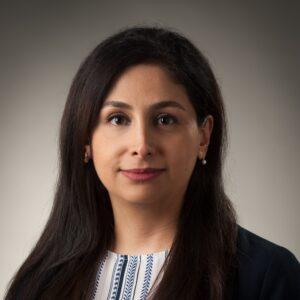EWU Professor Brings Iranian Women’s Rights to the Forefront in Upcoming Panel
This news story was made possible by contributions to FāVS from readers like you. Thank you.
News Story by Cassy Benefield
Arezoo Davari wanted to show solidarity with the women in Iran and to speak out against their oppression.
As an associate professor of marketing at Eastern Washington University and an Iranian, Davari believed a college panel event of Iranian women talking about life in their country would be one way she could do something.
Not only would this be in honor of Women’s History Month, she says, but it would give her and the panelists a chance to teach others about the Women Life Freedom Movement. This women-led revolution began with the death of Mahsi Amini after a severe beating at hands of Iran’s morality police for not properly wearing a hijab.
“In our [Iranian women] community here, we realized that we still need to spread the word and just inform people here what’s happening in Iran,” Davari said.
Not many people in the area really understand what is happening in Iran like they do in larger cities because the Iranian community here is so small, she says.
What Will the Panel Event Discuss?
The two-hour panel discussion will take place on Wednesday from 4-6 p.m. at Nysether Community Room in Pence Union Building on EWU’s Cheney campus.
The event will be led by Davari. She’ll spend the first 30 minutes discussing the history of the women’s rights movement in Iran, which dates back to about 100 years ago.
There will be four additional Iranian women from various generations and backgrounds on a panel. They will discuss their experiences in Iran and what’s going on there today in the following hour.
Specifically, one of the panelists will be discussing women’s rights in Iran from her Baha’i perspective. This is a religious minority that has suffered persecution in that country.
Another panelist will talk about Niloofar Hamedi, who “was one of the first journalists to cover Amini’s story and published a photo of her parents hugging in the hospital that spread rapidly online,” according to the U.S. Commission of International Religious freedom.
The last 30 minutes will be open for questions from the audience.
Davari Believes Protecting Women’s Rights in Other Countries Protects Women’s Rights in the U.S.
Davari ultimately hopes the panel event shows how women in Iran are not treated as adults. For example, they can’t receive proper breast cancer treatment unless the husband — or the father for unmarried women — gives permission. Women also represent 11% of the job market despite making up about 60% of all the higher education graduates, she says.
“The philosophy behind this movement is the fact that by doing all this discrimination and limitation against women in the world, you’re basically killing life,” Davari said. “When I go back (to Iran), I can see that the whole country is depressed. People are not happy anymore. And I can totally see that. Because like in our daily lives, we have to just fight with all these rules that are against us.”
She also thinks it’s important that Americans “understand the importance and value of these rights here … so we don’t back.”
This event is free and open to the public.
The panel discussion can also be attended by Zoom, at this link: https://ewu.zoom.us/j/99161369189.
For questions or accommodations, contact Kim Davis at kdavis2@ewu.edu.







